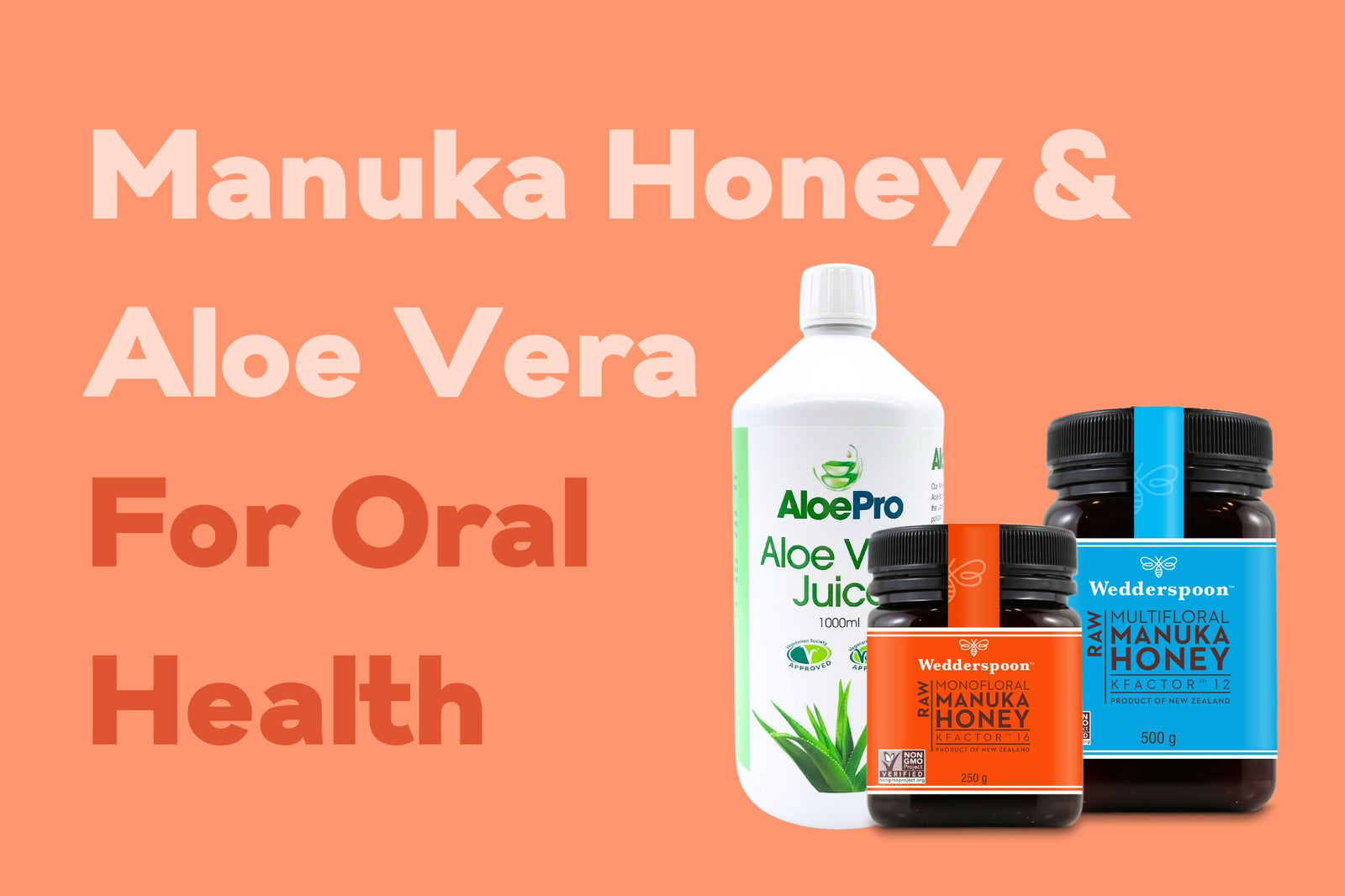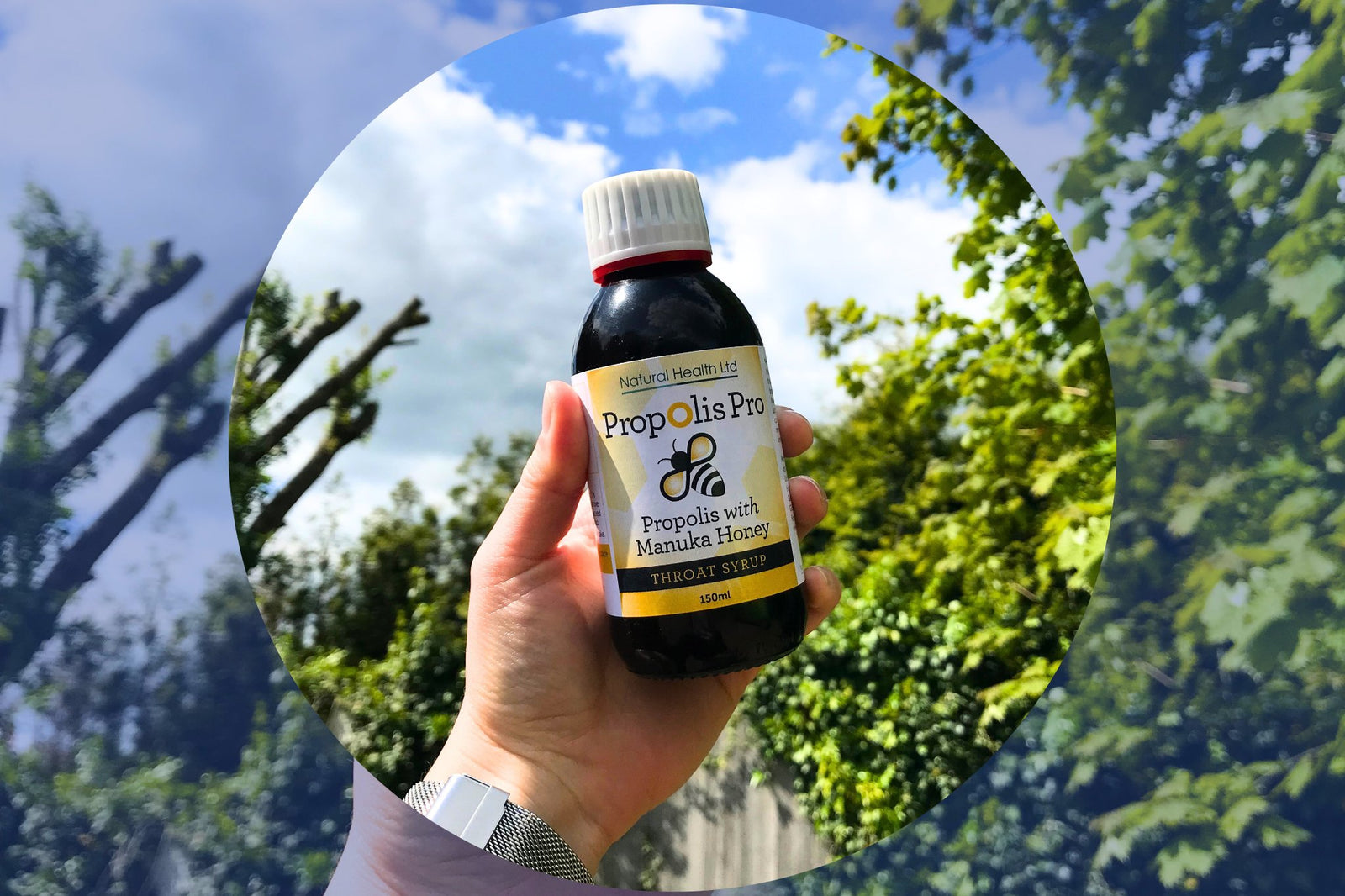Your Cart is Empty
Manuka Honey
Focus on Propolis
October 10, 2022 4 min read

What is Propolis?
We’ve all heard of honey, but what is propolis?

Propolis is a substance which bees create by mixing their saliva with beeswax, along with compounds and resin from various plants and trees. It is a sticky, waxy substance, and is occasionally called ‘bee glue’. Bees use it to seal gaps in the beehive to keep out intruders. Propolis also has antimicrobial properties, therefore, it creates a sterile environment and protects bees from pathogens. It ensures that illness does not spread from one bee to another in the hive. Propolis prevents microbial infection of larvae, honey stores, and the combs by stopping uncontrolled airflow and external moisture from getting in.
Propolis is rich in flavonoids and antioxidants. It has a long history as a natural treatment for many health problems. The composition of propolis can vary depending on the location of the bees and what trees and flowers they have access to. Scientists have identified more than 300 separate compounds. This can make it difficult for researchers to come to general conclusions about its health benefits.

As a rough guideline, propolis typically consists of:
- 50% Tree and vegetable resins
- 30% Beeswax
- 5% Pollen
- 10% Essential and aromatic oils
History of Propolis

Humans have been using bee propolis medicinally, both internally and externally, for centuries. The Ancient Greeks used it to treat abscesses. Assyrians put it on wounds and tumors to fight infection and help the healing process. Egyptians used it to embalm mummies. In the Middle Ages propolis was not a very popular topic, however, the knowledge of its medicinal properties survived in traditional folk medicine.
Its history:
- 5500BC - Ancient Egyptians used propolis as an embalming substance, and for its soothing and healing properties.
- 100BC - Roman soldiers took propolis to war to heal wounds. They used it as a morale-building tonic as they set out to conquer the world. The women used a propolis cream to nurture their face and bodies. They named it 'the woman's friend'.
- 1600 - Propolis was listed as an official drug in the London Pharmacopoeias.
- 1914 - In the first and second world wars, propolis was used by the Soviet Union in first aid to reduce wound infection and speed healing. It was nicknamed Russian Penicillin.
- 1973 - Dr. Karl Lund Aagaard, a Danish biologist, earned the name ‘Dr. Propolis’ for completing studies proving the effectiveness of propolis in treatment. He also found it produces almost no side effects.
- 1990 – Propolis’ benefits started to be talked about and there was increased publicity on the subject.
In the modern day, propolis has been expanded into skin care, dental care, digestive health, immune support, and more.
Medicinal Properties of Propolis
Researchers have identified more than 300 compounds in propolis. The majority of these compounds are forms of polyphenols, called flavonoids. Polyphenols are antioxidants that fight disease and damage in the body.
Propolis is also thought to have antibacterial, antiviral, antifungal, and anti-inflammatory properties. But scientific research on propolis is limited. Researchers aren’t exactly sure why, but the bee product appears to provide protection from some bacteria, viruses, and fungi.
What are the Health Benefits of Propolis?

What does propolis help with:
- Colds– Propolis can be effective at treating acute colds, sore throats and chest infections, due to its antibacterial, anti-inflammatory and antiviral properties.
- Wounds – As propolis is naturally antibacterial, anti-inflammatory and antiseptic, it is great for skin and wound healing! It can help with burns and oral surgery wounds by speeding up new cell growth.
- Eczema – Propolis cream or ointment can also help to relieve dryness and itchiness caused by eczema and similar skin conditions.
- Cold Sores – Research found that when propolis is applied topically 3 times a day it has helped to heal cold sores faster than no treatment at all. It has also been found to protect the body against future cold sore breakouts
- Oral Health – Propolis also prevents the formation of calcium phosphate, which is the main component of dental plaque. Its antibacterial properties can reduce the amount of bacteria in the mouth.
- Arthritis – The antioxidants in propolis can help to reduce inflammation, such as the inflammation that arthritis causes.
- Cancer - Propolis has been suggested to have a role in treating certain cancers as well. It may keep cancerous cells from multiplying, and reduce the likelihood cells will become cancerous. This suggests that propolis could be used as a complement therapy, but not as a sole treatment for cancer.
However, it is important to note that there is currently not enough research on propolis for its health benefits to be clearly understood. It is important to consult with a GP or healthcare professional before trying certain products.
How Propolis can be Used

Propolis is available in many forms. It can be taken as a tablet, capsule, powder, extract or lozenge. Propolis can sometimes be found in nasal sprays, throat sprays, as well as mouthwash and toothpaste. Alternatively, propolis can be applied topically, directly to the skin. It can be found in ointments, creams, lotions and gels.
Safety Concerns
Propolis appears to be safe for humans to use, at reasonable doses, both on the skin and internally. There is no recommended daily dose of propolis as there are limited studies on the topic. However, it has been used by adults in doses of 400 to 500mg by mouth daily for up to 13 months.
- It is recommended that you do not use propolis if you allergic to bee products, including honey.
- Propolis may also slow blood clotting and increase the risk of bleeding. People with bleeding disorders should be cautious. Propolis should also not be taken two weeks before surgery.
Always speak with a doctor before trying new supplements or new products that you are unsure on.
Also in Blog
Subscribe
Sign up to get the latest on sales, new releases and more …











